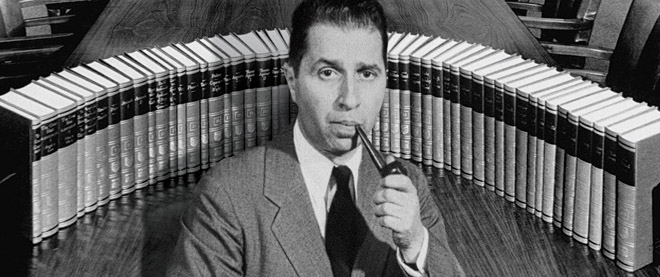
What is interesting about Wikipedia? I’ll give you a hint: It’s not how it it is made.
A “wiki” is a content source powered (in general, completely powered) by social software technology, with people collectively creating and refining the content. The online encyclopedia Wikipedia is the quintessential wiki — while there are other major wikis, from the addictive TV fan site Lostpedia to the new and astoundingly-awesome online typography reference Typedia, Wikipedia is still the mother of all wikis. Wikipedia has so thoroughly conquered our mental model of what an information reference is supposed to be that its most salient concept (social editing) has become inseparable from its fundamental purpose (complete information).
(In fact, I’ve started to notice people using the wordlet “pedia”, rather than “wiki”, to indicate “socially-powered content”. It seems that, for some people, a “wiki” and a “pedia” are the same thing, which to me is tantamount to thinking the “hi” in “hijack” means “airplane”, justifying “carjack” as a legitimate word.)
The “pedia” in Wikipedia is a nod to the “encyclopedia”. The wikipedia, we are supposed to infer, is an encyclopedia powered by a wiki. It’s beyond encyclo, it’s wiki!
The word encyclopedia means “complete or well-rounded” (i.e., encyclo) + “knowledge or learning” (i.e., pedia). So, interpreted one way, “Wikipedia” can mean “People getting together to record knowledge”, which of course is exactly what Wikipedia is.
But Wikipedia’s founder Jimmy Wales could just as well have called it “Encyclowiki”, meaning “people getting together to describe everything”, which in many ways is what Wikipedia, in its blossoming omniscience, has ultimately and more resonantly become.
For it is no longer impressive, at least to me, that Wikipedia is community-generated. Big deal, I get it, I agree with it. I buy into the Here Comes Everybody premise. I take the wisdom of crowds for granted. Like millions of others, I am thoroughly sold on Wikipedia, especially after seeing topics I thought I knew everything about described in informative, passionate, and sometimes astonishing detail. It’s the content that draws me, not the phenomenon that caused the content to get there (if anything, the phenomenon has, and continues to be, Wikipedia’s biggest perceived weakness).
This is why I am glad that Typedia is Typedia and not Wikitype or Typewiki. Typedia is, above all, a compendium of knowledge about type. The fact that it is socially-powered is something we can and should take for granted (and, of course, participate in). This kind of comprehensive one-stop collection of esoteric knowledge simply isn’t going to happen, ever, without social participation.
Basically, we’re all wiki now. We already work together. It’s the pedia part, the knowledge itself, we’ll always be striving for.
Comments
2 responses to “Pedia Tricks”
It’s interesting that you would both say “Wikipedia’s founder” Jimmy Wales, and that he “could just as well have called it “Encyclowiki—.
Wales was a “co-founder” of Wikipedia, and he didn’t even name it — the other co-founder, Dr. Larry Sanger, is the one who applied the name “Wikipedia”.
There is a bit of an intellectual scuffle over the purported lies that Wales continues to disseminate by claiming that he is the “founder”, or even more ridiculously, the “sole founder” of Wikipedia. See Sanger’s open letter to Wales and the media, if you care to see more.
It gives me pause to have a publicly-accused liar as the Chairman Emeritus of the foundation that oversees the “sum of human knowledge”. There’s some irony there, I guess, which is a bit humorous.
Actually, I don’t give a fuck who is credited with inventing Wikipedia. Nobody (well, almost nobody) who uses it does. That was my point. I shouldn’t have even mentioned it if I knew I was going to stir up dramatics.